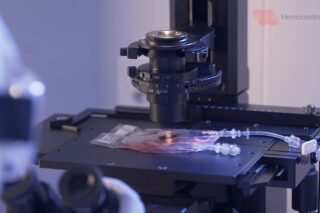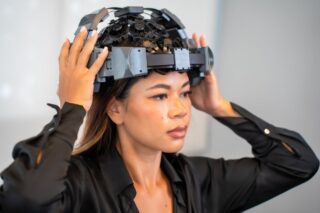Amid the limitations of traditional methodologies and the urgent need for innovation in healthcare, French researchers and industry experts are highlighting the transformative potential of artificial intelligence (AI) in medical research. A new article co-authored by Dr. Jean-Louis Fraysse and Vincent Diebolt explains how AI-generated virtual patients are helping to redefine clinical trials.
The Challenges Facing Today’s Medical Research
Medical research is at a critical juncture. With rising societal demand for innovative, safe, effective, and personalized treatments, the traditional model for evaluating therapies—centered on conventional clinical trials—is revealing its shortcomings. These trials, which rely on standardized protocols and require large numbers of participants, are poorly suited to rare diseases or patient groups with specific biomarkers due to limited volunteer availability.
This issue is especially pressing given the surge in therapeutic innovations: in 2024, the European Medicines Agency (EMA) approved 114 new drugs, up from 77 in 2023.
AI and Virtual Patients: A Promising Solution
To overcome these challenges, the use of virtual patients—generated from real medical data using advanced generative AI (GenAI) models—is emerging as a highly promising solution.
“Thanks to these advanced models, it’s becoming possible to create artificial cohorts that are fully representative of real patient profiles,” the authors explain.
This approach offers several key advantages. It reduces patient risk by simulating therapeutic trials virtually, eliminating the need for direct exposure. It also accelerates access to new treatments by significantly shortening the duration of clinical trials. Additionally, synthetic data ensures patient confidentiality while preserving the statistical integrity of real-world data.
A Regulated and Structured Approach
France is leading the way in integrating AI into medical research, with several major projects already underway. For example, the RECORDS trial, conducted by the PROMETHEUS university-hospital institute, is assessing personalized corticosteroid therapy for serious conditions such as sepsis and acute respiratory distress syndrome.
Another initiative—led by Toulouse University Hospital and Paris Cité University—recently demonstrated the effectiveness of virtual cohorts in assessing risks related to preoperative anesthesia and optimizing medical algorithms, further validating the reliability of these artificial profiles.
To formalize and advance this new methodology, a French consortium called SILICA has been established. This alliance unites clinicians, researchers, statisticians, and methodologists from both public and private sectors. Their goal is to create a scientifically rigorous framework for the use of synthetic data in medical research while coordinating with regulatory bodies. Their broader ambition: to position France as a pioneer in digital clinical trials.
A Unique Opportunity for French Clinical Research
To scale this approach, several key challenges must be addressed: ensuring access to large volumes of high-quality data, refining algorithmic models with scientific validation, and gaining support from French regulatory authorities such as the National Agency for Medicines and Health Products Safety (ANSM) and the French National Authority for Health (HAS).
The stakes are high. The clinical trials market is projected to reach $93 billion by 2032 (up from $51 billion in 2024), while the digital trials market is expected to grow to $5 billion by 2029 (from $3.6 billion in 2024). This represents a significant economic opportunity.
“We don’t want to miss this historic chance to position our country at the forefront of the future of medicine,” say Vincent Diebolt, Executive Director of the F-CRIN clinical research infrastructure, and Dr. Jean-Louis Fraysse, co-founder of BOTdesign, a company specializing in medical tool development.
About the Authors
Vincent Diebolt is the Executive Director of F-CRIN, a clinical research platform made up of 20 specialist networks that has helped to make France a world leader in the sector. He is also a member of Institut Sapiens’ “Science & Innovation” observatory.
Jean-Louis Fraysse is a Co-Chair of the French alliance SILICA. An expert in artificial intelligence and digital health, he is a member of the Working Group on “New methodological approaches in clinical trials” led by the French Health Innovation Agency and F-CRIN. He is also a member of the French Digital Health Delegation’s Ethics Group.











